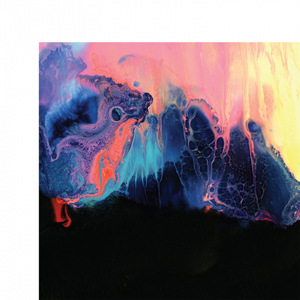Shigeto No Better Time Than Now
Though he hails from Ann Arbor and is now based in Detroit, Shigeto and his […]

Though he hails from Ann Arbor and is now based in Detroit, Shigeto and his music feel inextricably linked to the tradition of LA beatmaking. He made a name for himself swimming in the same nebulous pond as the likes of Flying Lotus, Dabrye, and Lapalux, but his robust predilection for jazz and the soulfulness it can lend to instrumental hip-hop are anything but put on. It’s well documented that the artist born Zach Saginaw grew up listening to Motown and hip-hop records, and gradually harnessed his musical chops as a jazz drummer first and foremost. And with Saginaw’s second LP for Ghostly, No Better Time Than Now, it might be more accurate to say that Shigeto creates beat-influenced jazz, not jazz-influenced beats, a style which he makes sound more sublime and invigorating than ever across the album’s 12 tracks.
Synthesis is at the core of Shigeto’s latest record, likely because he is simply bursting with ideas. If there’s not enough space for every rhythm, soundscape, and melody he can dream up, Saginaw seems to think that meshing them all together is entirely reasonable—and luckily, he has the finesse to make it work. But even as jazz, hip-hop, samba, techno, ambient, R&B, and other genres coalesce throughout No Better Time Than Now, the moods and stylistic applications are constantly changing direction, often within singular pieces. “Detroit Part 1,” for instance, gets started on a moonlit boom-and-slap vein which directly recalls Flying Lotus’ now-seminal Los Angeles, but it eventually turns an unexpected corner, finishing in a more somber and delicate tone. Album standout “Ringleader” does a superb job mixing Four Tet’s melodic accessibility with jazz-rooted polyrhythms that recall Tortoise’s multi-percussion powerhouse, and does so for six minutes without sacrificing dynamics or sounding indulgent. Saginaw has versatility in spades, and—perhaps more importantly—he knows exactly how to distill his ambition and jaw-dropping musicianship into a coherent and consistently surprising whole.
A good portion of No Better Time Than Now deals with beats, bass, and the gritty spaces in between, but it’s not at all lacking in soul or poignancy. The LP’s deep, velvety moments are often where Shigeto excels the most, like on “Miss U,” when his drum-oriented skills take a backseat to his Rhodes’ purple and burnt-orange chords and a twinkling, astral ambiance. Though, as a number of these songs do, “Miss U” ends on an entirely different note, which feels like Saginaw offering the listener a palate cleanser, a chance to contemplate the piece and prepare for what’s next. It’s a brilliant trick, and one that helps give the LP an added wrinkle of character while also bringing to mind the flow of classic jazz records. Tracks like “Ritual Howl” and “Soul Searching” capture a similar vibe, albeit in a brighter light, and find Shigeto perfectly balancing the satisfying thump of sub-busting hip-hop with jazz’s curiosity and uncompromising ethos.
As opposed to a loosely similar album like, say, Flying Lotus’ Until the Quiet Comes, Shigeto’s sophomore LP subsists entirely on the instrumental and production talents of one person. That shouldn’t really be saying much, but in a year where guest appearances and high-profile collaborations are the driving forces behind a number of prominent releases, knowing that an album as masterfully crafted and immersive as No Better Time Than Now is the creation of an artist alone in his studio gives its music a special appeal. Saginaw’s clarity of vision permeates his new record, even during the brief lulls when the music seems to be taking a break to catch its breath, and makes it a resounding statement in his musical career. If he isn’t already, Shigeto should be counted among some of the best contemporary jazz artists alive, and No Better Time Than Now is the reason why.

